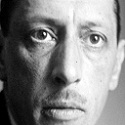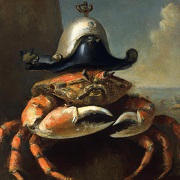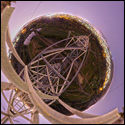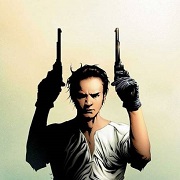|
Hieronymous Alloy posted:Blade Runner, Godfather, and Fight Club are all better movies than they were books. Dick's "originality" is also a bit historical now, which is why the lamest adaptations of Dick are really lame. If they don't "add" something, then there's nothing to them, at all, because most of what made Dick original is, by now, cliché. See: Paycheck and The Adjustment Bureau. Those are both good Dick books, but awful movies. The books were original; the movies were not. -- [1] Here I mean both hard sci fi type originality, which could be attributed also to the likes of Asimov and other sci fi authors, but I also mean that peculiar weirdness that's also kinda bonkers ("deranged") and which is unique to Dick. [2] No, even Neuromancer wouldn't cut it, goddamnit!
|
|
|
|

|
| # ? Apr 16, 2024 10:39 |
|
VagueRant posted:I just finished the deeply unsatisfying A Dance With Dragons (aka Game of Thrones Part Five: Dragon Boogaloo) and then cracked open a Jack Reacher novel - 61 Hours. I am THREE pages in and the difference in the quality of prose between the two authors is staggering to me. Jaime said nothing.
|
|
|
|
Currently reading through Dracula, and I just have to say that the luck of Van Helsing in regards to blood transfusions is absurd. Four separate instances Lucy undergoes this procedure, all with positive results. The odds of her being a universal acceptor are approximately 3%. How funny would it have between if, after the first transfusion, she just seized and died?
|
|
|
|
Johnny Truant posted:Currently reading through Dracula, and I just have to say that the luck of Van Helsing in regards to blood transfusions is absurd. Four separate instances Lucy undergoes this procedure, all with positive results. The odds of her being a universal acceptor are approximately 3%. How funny would it have between if, after the first transfusion, she just seized and died?
|
|
|
Johnny Truant posted:Currently reading through Dracula, and I just have to say that the luck of Van Helsing in regards to blood transfusions is absurd. Four separate instances Lucy undergoes this procedure, all with positive results. The odds of her being a universal acceptor are approximately 3%. How funny would it have between if, after the first transfusion, she just seized and died? There's a book that came out recently on the early history of blood transfusions that looks really interesting: http://www.amazon.com/Blood-Work-Medicine-Scientific-Revolution/dp/0393342239
|
|
|
|
|
Casimir Radon posted:Blood types wouldn't be distinguished from each other for another three years after publication. In hindsight it is pretty funny. Isn't that true of a lot of books, though. I was reading The Mandarins recently and I couldn't help but think how much better everybody's life would have been if they had Prozac in the 40s and 50s.
|
|
|
|
Irish Joe posted:Isn't that true of a lot of books, though. I was reading The Mandarins recently and I couldn't help but think how much better everybody's life would have been if they had Prozac in the 40s and 50s. Nearly all of the mystery/suspense novels I've read would resolve fairly quickly if they'd only had cell phones.
|
|
|
|
Not that this contradicts the accuracy of the transfusions or whatever, but part of the symbolic point of Lucy's multiple transfusions is that she commits bigamy by accepting blood from three different donors whom she's courting and with whom she's constantly flirting. Earlier in the novel she makes a joke about bigamy, which is like a small signal to the reader that she's totally the one who's gonna get bitten/killed. She's also the one who "lets in" Dracula... because, y'know, if you get your blood sucked by a vampire, you were totally asking for it. Mina, the good girl and the virgin, by contrast, only ever accepts blood from her fiancé. Exchanging blood = sex, like all good sexy vampire fiction (and John Donne's "The Flea"). It follows the logic of like a Victorian 80s movie, is what I'm saying.
|
|
|
|
BrosephofArimathea posted:Jaime said nothing. x nodded. x got up. Switched the light on. Then he did something and did something else and did one more thing and wondered if commas would be better than ands. He said, "Nope." Followed by another attempt to fill a paragraph with actual prose by describing snow for the fiftieth time.
|
|
|
|
I have a question about the distinction between genre and literary fiction. I'm asking because I'd like to get into some more serious fiction but I don't think my current tactic of adding interesting sounding authors and books on Wikipedia to my Amazon wish list is a good one. I know, for example, George R.R. Martin is definitely genre fic, but what about someone like Le Guin or Huxley? Or is the distinction a bit pointless at that point?
|
|
|
|
Mecca-Benghazi posted:I have a question about the distinction between genre and literary fiction. I'm asking because I'd like to get into some more serious fiction but I don't think my current tactic of adding interesting sounding authors and books on Wikipedia to my Amazon wish list is a good one. I know, for example, George R.R. Martin is definitely genre fic, but what about someone like Le Guin or Huxley? Or is the distinction a bit pointless at that point? Le Guin is genre fiction as well, although much better written and literary within said genre than GRRM (who is awful), but Huxley is harder to pin down. He wrote in a variety of genres like fiction, poetry, essays, etc. What books did you like which you'd like more of? Do you have a Goodreads account? Keep track there, friend us up and it might help you with books you might like.
|
|
|
|
Huxley's as much a genre writer as Orwell. I enjoy him though, and recommend Eyeless in Gaza and Point Counterpoint of his. I think the term "genre fic" only makes sense in a disparaging tone, meaning that the only reason you'd read that dreck is that at one point someone will stab a dragon. Like, Phillip K. Dick wrote exclusively sci-fi and yet owns bones and I'd say that anyone who decided to dodge him in an attempt to better themselves is misguided.
|
|
|
|
"Genre fiction" is often used in a disparaging way, but I think there's definitely value in separating quote-unquote literary fiction from sci-fi, crime fiction, etc. Not because literary fiction is automatically better, but because it's responding to different influences and aiming towards different goals than fiction in other genres. Of course, there are a lot of borderline cases.
|
|
|
|
Mr. Squishy posted:Huxley's as much a genre writer as Orwell. I enjoy him though, and recommend Eyeless in Gaza and Point Counterpoint of his. Genre fiction is much maligned and I think it's used far too often as a tool to separate a 'good' (as in literary) book from a 'bad' book. I think a lot of really 'good' books are novels that rise above their genre's stereotypes and move past them to create something great, and there are a lot of fantastic novelists that I would consider as writing genre fiction and yet are often categorized as literary. Book Barn loves Cormac McCarthy, for instance, but he definitely writes horror fiction. Child of God, Blood Meridian, and The Road have all the earmarks of a typical horror novel but because he does something with the usual horror tropes and elevates them to something more meaningful, he doesn't get classified with a typical horror novelist like Bentley Little or Stephen King. Then you have someone like say, Gene Wolfe who would say firmly that he is a Science Fiction/Fantasy writer, and yet the Book of the New Sun is just as deep and dense as reading any literary fiction, and in fact Wolfe is very influenced by the writings of Jorge Luis Borges and his works contain literary allusions to people like Kafka.
|
|
|
|
I heavily dislike the idea of genre fiction. Not in a scifi-fantasy-horror whatever is terrible and hate it way. I dislike that it promotes separation from other literary works, otherises it and is not expected to be held at the same level as other books. Nothing kills me more than having someone say something like, "Its good for a _____(insert horror/erotic/steampunk/smegma/urban fantasy/etc.) book."
|
|
|
|
I think the problem is that most speculative fiction is setup so that the writing is in service of the premise, rather than the other way around. Stories with fantastical elements can be well written and beautiful, even critically lauded (like Bradbury, Vonnegut, Asimov, Marquez, Miyazawa, etc.) but most of it doesn't aspire to the heights of other fiction. Most of it is written like any standard light reading you can find at the airport but instead of steamy sex scenes or spy thriller action driving the plot, it's spaceships and aliens or magic and dragons.
|
|
|
|
I just see "genre fiction" as set of conventions; a novel of "genre fiction" is a novel that follows the conventions of a particular genre. It's usually a pejorative term because most authors who choose to write in a particular genre aren't exactly trying to push the boundaries of the form. In the hands of a hack, who just relies on those conventions without building on them or twisting them or adding anything original, then all that comes out of those conventions is hack work; in the hands of a brilliant writer, though, the conventions of genre can be the structure for brilliant stories, whether it's by building and playing on those conventions or by overturning them into something new. Look at the history of mystery novels for a good example. You start out with Poe and Arthur Conan Doyle, and by the 20's and 30's and 40's the genre settled into a set of fairly well established conventions -- english country house, amateur sleuth, etc. Then Dashiell Hammett and Raymond Chandler come along and say "gently caress you, no, murder is criminal, and dark, and here's what it's really like" and they write novels about hard-bitten private detectives investigating senseless killings in sleazy, corrupt cities - and in the process they invent a whole new genre, noir (for Chandler's essay on this, see here: http://www.en.utexas.edu/amlit/amlitprivate/scans/chandlerart.html) I love genre fiction when it's done well, because a good writer can play with genre and the expectations of genre. It's another tool in the toolbox. One reason Kurt Vonnegut's works are so much fun is that he's often playing on the conventions of pulp sci fi. The Name of the Rose is brilliant in part because it plays on the conventions of mystery novels (among many other genres). Faulkner and Steinbeck play on the conventions of contemporary tawdry pulp sex novels in Sanctuary and The Wayward Bus (respectively, obviously). It's that very churning of literary forms that creates new genres; Tolkien wasn't setting out to create "Fantasy" as a genre, he was setting out to write medieval sagas for an imaginary pre-Norman England. In the hands of a skilled writer, genre isn't a crutch; it's a scaffold. So, personally, I read just about everything, and try to appreciate all of it for what it is, if it's done well within the constraints of what it's trying to be. I think it's important to be open to good work, whatever form that work happens to be in. If I weren't, I think I'd have missed a lot of really great books, and I wouldn't have appreciated what a lot of authors were doing in books I did read because sometimes you have to know the conventions of genre yourself in order to appreciate what an author is doing with them. (full disclosure: my lit crit professor used to call me the "class genre critic.") edit: For a good example of a work of unabashed genre fiction that achieves something brilliant by playing with genre conventions, I'd point out Tooth and Claw by Jo Walton. It's a satire of Austen / Trollope style regency& victorian romance novels, and also a fantasy novel where all the characters are dragons. The conceit is that in the world of this novel, all the arbitrary rules of Regency / Victorian society (the absolute importance of inheritance, predation on the lower classes, preservation of female virginity, etc) are all actual biological imperatives, because dragons. It's a brilliant little thought experiment, and clever enough that it gives a fresh perspective on class and gender in Austen, Trollope, etc., which is actually pretty drat hard to do given how much ink has been spilled on that topic. Unfortunately, because it has a dragon on the cover, a lot of people who would otherwise appreciate it probably will never read it. Hieronymous Alloy fucked around with this message at 21:16 on Feb 12, 2014 |
|
|
|
|
Hieronymous Alloy posted:I just see "genre fiction" as set of conventions; a novel of "genre fiction" is a novel that follows the conventions of a particular genre. It's usually a pejorative term because most authors who choose to write in a particular genre aren't exactly trying to push the boundaries of the form. In the hands of a hack, who just relies on those conventions without building on them or twisting them or adding anything original, then all that comes out of those conventions is hack work; in the hands of a brilliant writer, though, the conventions of genre can be the structure for brilliant stories, whether it's by building and playing on those conventions or by overturning them into something new. You took the words right out of my mouth and wrote them out better than I ever could  I'm curious about what other 'genre' books you'd recommend that achieve greatness with genre tropes, any more recs? I'm curious about what other 'genre' books you'd recommend that achieve greatness with genre tropes, any more recs?
|
|
|
Poutling posted:You took the words right out of my mouth and wrote them out better than I ever could Unfortunately, the other side of the coin is that I have to admit the kind of thing I'm talking about there is really loving hard to pull off well. A lot of the more talented writers play on genre tropes to one extent or another, and if I went through the library book by book I could come up with a long list of increasingly attenuated examples (ever notice how the Harry Potter books have fantasy settings, but mystery-novel plots?), but it seems to take a certain kind of very self-aware writer to write the kind of deliberate, full-on, focused genre play I was thinking of. There are a few series here and there where otherwise second-tier writers have come up with unique stories by putting their own new twist on prior genre forms (Asprin's Myth series and Butcher's Dresden Files spring to mind) but those aren't really the sort of thing I was thinking of above -- they're fun in their way, but they aren't a reason for a fan of high-art literature to go swimming in the pulp sewer. One more small-scale example might be Michael Chabon's recent Gentlemen of the Road. Like everything else Michael Chabon writes, it's "what if two gay jewish dudes did [awesome thing], but in the case of this book in particular the awesome thing is "be Conan-style (or more precisely Lankhmar-style) swordsmen-adventurers", so it's a neat little twist on the form, if nothing earth-shattering. One set of obvious examples are the various reworkings of King Arthur by authors all over the spectrum -- Steinbeck's Tortilla Flat, Mark Twain's A Connecticut Yankee in King Arthur's Court, and Don Quixote all re-work the King Arthur stories in different ways to different ends. There's a yet another good reason to read genre fiction, though, which I didn't get into above; properly executed, genre fiction aims at executing a particular effect, and a master of genre fiction is a master of achieving that effect. I mean, it would be easy to dismiss Poe as a genre horror writer (and even easier with Lovecraft). But both writers are absolute masters when it comes to achieving their particular hallmark effects. If you're a budding writer, and you want to learn how to write a scary scene, it's probably worth reading a bunch of stuff by the masters of pulp horror to see how they do it. And sometimes you can learn things even from reading bad writers. I mean, Stephen King is a bad writer. He is. His books are bad. But some of them contain moments or individual scenes of real genius, and (if you have the right tolerance for it) it can be worthwhile to sift through the mud to find the gems. If you don't have the time or the inclination to so sift, that's fine too -- lord knows I didn't bother to finish the Dark Tower series. But I'm glad I read the first couple books in it. Anyway, I don't want to defend all genre fic universally here or say that everyone should read lovely books. Even I have my own personal book-snob standards -- for example, I have a visceral disdain for star wars/star trek novels, warhammer novels, and licensed fiction generally. If I were completely self consistent I'd tell myself "wait, how do you know they're bad till you've tried them?" but, y'know what, I'm happy in my ignorance there. I guess I'm just trying to illustrate that there can be good reasons to read genre fiction and even pulp, too, if you want -- there are gems in all that mud, if you know where to look. Hieronymous Alloy fucked around with this message at 09:12 on Feb 13, 2014 |
|
|
|
|
Hieronymous Alloy posted:
I have issues with (some of) his endings, but I wouldn't say Stephen King is "a bad writer. He is. His books are bad," or that he's worth reading only for those moments of genius. He's a good writer. He is. His books are good. His short stories, say, "The Jaunt," "The End of the Whole Mess," "The Reach," and probably more I'm forgetting off the top of my head, are all excellent through and through, and can stand up to the best work of the last 50 years and not get embarrassed. I mean, they won't always win in a given contest when put up against some other story, but by God he won't be blown out of the water and it'd be closer than one would expect. (Think Rocky I.) And novels like Salem's Lot, The Shining, Pet Sematary, are classics, and their control of mood and character is insanely good, and fairly consistently so. Heck, I'll even go so far as to defend The Dark Tower's ending, but there I at least realize I'm fighting an uphill battle. Brainworm also has some good posts on King. DirtyRobot fucked around with this message at 20:50 on Feb 13, 2014 |
|
|
DirtyRobot posted:I have issues with (some of) his endings, but I wouldn't say Stephen King is "a bad writer. He is. His books are bad," or that he's worth reading only for those moments of genius. He's a good writer. He is. His books are good. His short stories, say, "The Jaunt," "The End of the Whole Mess," "The Reach," and probably more I'm forgetting off the top of my head, are all excellent through and through, and can stand up to the best work of the last 50 years and not get embarrassed. I mean, they won't always win in a given contest when put up against some other story, but by God he won't be blown out of the water and it'd be closer than one would expect. (Think Rocky I.) And novels like Salem's Lot, The Shining, Pet Sematary, are classics, and their control of mood and character is insanely good, and fairly consistently so. Heck, I'll even go so far as to defend The Dark Tower's ending, but there I at least realize I'm fighting an uphill battle. The thing that bugs me about King is that for all his brilliance he does some things that are just painful. Every other book he writes seems to have a Magical Negro, for example, and even when he writes something that's really good, like the first half of The Stand, he all too often manages to ruin his effect by writing something horrible and sticking it in the same story (like with the last half of The Stand). Some of his characters are brilliant but some are just cardboard cutout stereotypes. He definitely has moments of real genius, but I feel like at the end of the day King doesn't really know what he's doing -- the impression I have whenever I read his work is that of an amazingly gifted writer who still needs a few years of creative writing classes. I do get what you're saying there, though. When he's "on", he's really, really on.
|
|
|
|
|
I've always been of the opinion that in a few centuries King will be read the way people read Charles Dickens today -- incredibly popular in his moment, with a great knack for encapsulating or representing a particular time and place, along with a wealth of information about material culture, etc. Like Dickens, King's novels aren't all masterpieces, mostly due to the writers' proclivities to write far more than is necessary about a given thing and make up the plot as they go along, but they're shot through with moments that are either iconic or just some really crackerjack writing.
|
|
|
|
To further the comparison, contemporary reviewers of Dickens also thought his later novels were all stinkers and that he'd lost whatever it was that allowed him to produce things like Pickwick Papers, Oliver Twist, and David Copperfield.... And those fuckers* were wrong. Bleak House and Our Mutual Friend are now widely considered amongst his best novels. Makes you wonder if in the future reviewers will be like "OH MY GOD LISEY'S STORY IS SO GOOD." Truly a dark future. * Henry James among them
|
|
|
|
H.P. Shivcraft posted:I've always been of the opinion that in a few centuries King will be read the way people read Charles Dickens today -- incredibly popular in his moment, with a great knack for encapsulating or representing a particular time and place, along with a wealth of information about material culture, etc. Like Dickens, King's novels aren't all masterpieces, mostly due to the writers' proclivities to write far more than is necessary about a given thing and make up the plot as they go along, but they're shot through with moments that are either iconic or just some really crackerjack writing. Stephen King will likely not be remembered that way since his creative prime came just as Raymond Carver and Kmart Realism came and took the piss out of the exact sort of "overspecific cultural guidestones as scene-setting" that you mention. He'll likely be more appreciated by academics, for sure, but I don't think he'll ever be held in the same esteem as Dickens; more like a Francis Beaumont type that's overshadowed by a literary giant.
|
|
|
|
Lots of food for thought and interesting recommendations, thanks.  Fantasy or horror or whatever as a set of conventions makes sense to me. Fantasy or horror or whatever as a set of conventions makes sense to me.Fellwenner posted:Le Guin is genre fiction as well, although much better written and literary within said genre than GRRM (who is awful), but Huxley is harder to pin down. He wrote in a variety of genres like fiction, poetry, essays, etc.  One of the things I noticed when I did the reading challenge last year is that I read a lot of fantasy and this year one of my goals is to read more 'classics,' partly to improve my vocabulary (I'm not a native speaker) and partly because I want to get something more than entertainment from reading. Nothing wrong with reading for entertainment, of course. One of the things I noticed when I did the reading challenge last year is that I read a lot of fantasy and this year one of my goals is to read more 'classics,' partly to improve my vocabulary (I'm not a native speaker) and partly because I want to get something more than entertainment from reading. Nothing wrong with reading for entertainment, of course.My favorite book of all time is probably either Steinbeck's The Grapes of Wrath or maybe the Earthsea Cycle collectively by Le Guin. I really haven't read much 'literary' fiction but my favorite of the ones I have read would probably be The Remains of the Day by Kazuo Ishiguro, which was an awful book of the month some time back. Stravinsky posted:I heavily dislike the idea of genre fiction. Not in a scifi-fantasy-horror whatever is terrible and hate it way. I dislike that it promotes separation from other literary works, otherises it and is not expected to be held at the same level as other books. Nothing kills me more than having someone say something like, "Its good for a _____(insert horror/erotic/steampunk/smegma/urban fantasy/etc.) book."
|
|
|
|
Declan MacManus posted:Stephen King will likely not be remembered that way since his creative prime came just as Raymond Carver and Kmart Realism came and took the piss out of the exact sort of "overspecific cultural guidestones as scene-setting" that you mention. He'll likely be more appreciated by academics, for sure, but I don't think he'll ever be held in the same esteem as Dickens; more like a Francis Beaumont type that's overshadowed by a literary giant. Yeah, I think through things in an academic (and, well, specifically cultural materialist) lens, so I tend project that stuff into the future. I do think you're dead-on in that King probably won't persist with the same esteem as Dickens, though I don't know if Carver will be remembered that fondly either -- part of what helped Dickens was his populist appeal in an age where fiction was a primary form of entertainment. King's career likely wouldn't have taken off if not for De Palma's film version of Carrie, and the close relationship between his fiction and cinema is probably what did the most to cement him in the cultural consciousness. Carver doesn't have that going for him, though he was overall a better and more respected author. This is where the author-analogy barometers really start to fall apart. The circumstances and mechanisms that determined the adoption and persistence of a writer as A Writer have changed so much that I wouldn't even feel comfortable saying King's relationship with popular cinema would guarantee him a future Dickensian cultural cachet. I appreciate the Beaumont comparison (Knight of the Burning Pestle works precisely on the overspecificity we're talking about) but at the same time considering the megalith of Shakespeare and the many lengthy historical processes that contributed to making him not only A Writer but The Writer of the time, I don't think we could push King that far into the archives (or at least, any further than we might be tempted to push all print fiction, period).
|
|
|
|
Mecca-Benghazi posted:Lots of food for thought and interesting recommendations, thanks. We're friends already, I sent you a few recommendations. I've been trying to do something similar and read better, and am so far marginally successful. I keep sliding back every other book, though, so far.
|
|
|
|
H.P. Shivcraft posted:Yeah, I think through things in an academic (and, well, specifically cultural materialist) lens, so I tend project that stuff into the future. I do think you're dead-on in that King probably won't persist with the same esteem as Dickens, though I don't know if Carver will be remembered that fondly either -- part of what helped Dickens was his populist appeal in an age where fiction was a primary form of entertainment. King's career likely wouldn't have taken off if not for De Palma's film version of Carrie, and the close relationship between his fiction and cinema is probably what did the most to cement him in the cultural consciousness. Carver doesn't have that going for him, though he was overall a better and more respected author. Oh, I didn't mean to imply that Carver specifically would be what future scholars take from this century (or the last century, I guess) but that King picked a perfectly awful time to be King, basically. I don't know that there's a novelist out there that has complete dominion over the 20th century the way that history has dictated Shakespeare ran poo poo (poor Ben Jonson) but in academia King will likely take a backseat or, worse, become a kind of footnote to pop culture and the "moviefication" of literature.
|
|
|
|
Mecca-Benghazi posted:I learned a new word today. I am always looking for teaching opportunities. I think the best that King can really hope for is to be remembered like Lovecraft is. Both are not always the best writers but have some great things that they put out and are both hugely influential. I can easily see him having a cult following in the future.
|
|
|
|
H.P. Shivcraft posted:[...] part of what helped Dickens was his populist appeal in an age where fiction was a primary form of entertainment. Declan MacManus posted:[...] but that King picked a perfectly awful time to be King, basically. Dickens, by contrast, changed publishing. There's the re-popularizing of serialization thing, and there's also the fact that when he was just starting to get his sketches published, it used to be you had a drawing and the writer made a sketch to accompany it, but Dickens was like, "Nah, this drawing's no good; I don't care how many years you've been doing this; do the drawing to fit what I write." (Driving the illustrator possibly to suicide.) Then he became hugely popular with Sketches by Boz, made demands that were always -- remarkably -- met (e.g. "Sorry, we're doing Oliver Twist this way!"), and by mid-century he owned (and edited) the journals in which his stuff was published. The modern equivalent of a Dickens would be like one really strong personality doing a whole bunch of new things with the Netflix model of television serialization that seem totally weird but become so incredibly popular and influential it drat near overtakes movies in terms of popularity/where the money is. Stravinsky posted:I am always looking for teaching opportunities. My instinct is to defend King over Lovecraft, but I find this incredibly likely all of a sudden. DirtyRobot fucked around with this message at 13:53 on Feb 14, 2014 |
|
|
|
DirtyRobot posted:Yeah, I think another difference is that Dickens totally seized the means of literary production and changed it. Like, serialization had been on the outs for decades when Dickens rose to prominence and made it popular again. King, however, came at the tail end of being able to make a *somewhat reasonable* living writing short stories, and he published novels in exactly the same way they'd been being published for decades. Absolutely nothing changed. If anything, his publishing model is extremely old and on its way out, and only still workable for him because he's so popular. He embraced ebooks too. He wrote and published Riding the Bullet in 2000, which is considered to be the first mass-market ebook. It obviously helped that he was popular, but I remember that people criticized him for wasting something to the internet.
|
|
|
|
Juanito posted:I don't think there is much that King could be expected to do differently. It's not his fault that publishing novels was already popular, and he wasn't able to "change" the publishing industry. Why did he need to? It's not a matter of "needing to" change anything, but people who are truly groundbreaking tend to be remembered more favorably than people who were simply extraordinarily popular.
|
|
|
|
Quick question for anyone that knows: what is it called when the physical pages of a book are cut at uneven lengths? Example being The Yiddish Policeman's Union.
|
|
|
|
Deckled edging?
|
|
|
|
It's always a bit weird to see deckle edging on modern books. It often seems to be used to make books seem a bit more 'serious' and literary since the edge is mechanically reproducing an unavoidable effect of older papermaking. Here's a bit more about it.
|
|
|
|
Mr. Squishy posted:Deckled edging? That's it. I like it because I think its easier for my big meaty hands to grab and turn the next page and not get like three of them.
|
|
|
|
I don't really have an opinion one way or another about deckle edging, but I enjoy how it makes some people so mad that Amazon has to specify if a book has it or not.
|
|
|
|
Unless you're on the decklage that steeps down yonder from you, the page underneath's width that mm longer or so, then you gotta play some tricky poo poo out because someone, somewhere, thought that inconveniencing you personally with some weird old fashioned book cut was his God Given mission circa 2012. I feel like people who like deckled edging would be the people who appreciate Monty Python for it's timelessness and don't entirely think we should, you know, but that it would be pretty cool if we only used the original Oxford Dictionary for english and here's why: loving deckling. My friend works at an opportunity shop, or volunteers or whatever, and he's always bringing stuff home and it tends to be great but he has such a huge collection of books at his disposal, we're always trying to think of something to do with such a selection of Crichton and Steele and Smith, and it never occured to me, like, not even as whimsy, until he brought home I think some Eggers book with deckled edging and it hit me, book burning party. Deckled Edging Gave Me The Idea For A Book Burning Party.
|
|
|
|
I never thought I'd read a stream of consciousness rant about deckled edges.
|
|
|
|
|

|
| # ? Apr 16, 2024 10:39 |
|
Helmacron posted:Unless you're on the decklage that steeps down yonder from you, the page underneath's width that mm longer or so, then you gotta play some tricky poo poo out because someone, somewhere, thought that inconveniencing you personally with some weird old fashioned book cut was his God Given mission circa 2012. I feel like people who like deckled edging would be the people who appreciate Monty Python for it's timelessness and don't entirely think we should, you know, but that it would be pretty cool if we only used the original Oxford Dictionary for english and here's why: Beg pardon?
|
|
|


































